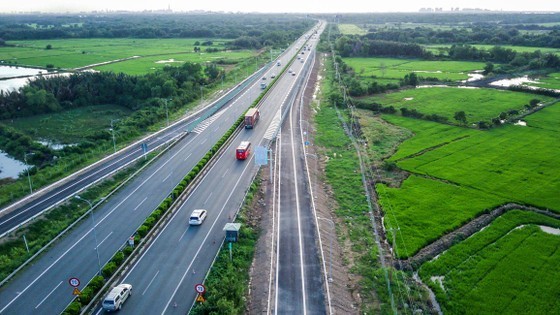 |
Reports on PPP investment in Vietnam have recently revealed that in the past three years, only two such new contracts have been signed. 10 projects that had already been submitted were greenlighted, and another 14 are waiting for approval. More than 100 PPP projects which had been launched before the effective time of the PPP Law are in progress.
Obviously, the reason for an extremely low number of newly signed PPP contracts is because of a lack of a detailed instructive document.
Except for the Transport Ministry with its circulars to guide PPP investments for the projects under its charge (6 months later than the assigned time of the Prime Minister – the second quarter of 2022), other fields like electricity, healthcare, waste treatment are also in need of PPP investment amounts, but corresponding ministries have released no guidance yet. This has prevented both investors and state management units from making a final decision.
For instance, a needed common PPP contract form is one essential document in the preparation for and launch of an investment project. However, until now, even in the traffic field, businesses are still waiting for the Transport Ministry to complete the draft instruction on certain content in an Operate-Manage (O&M) contract for expressways.
Therefore, in the 6th session of the 15th National Assembly, the legislature had to consider introducing a resolution on a specific mechanism to accelerate a number of road traffic projects, including tackling PPP-related issues.
The Bidding Division under the Planning and Investment Ministry admitted that in the traffic and energy fields, several Build-Operate-Transfer (BOT) projects have already been carried out before the effective time of the PPP Law.
Nevertheless, other fields and industries still lack sufficient practical experience, leading to their frustration in choosing a suitable PPP model for a project. Take the healthcare aspect as an example. There is still a heated debate among legal experts on whether to opt for a BOT model or a Build-Transfer-Lease (BTL) one.
In the fields of electricity, education, water supply, sewage and solid waste treatment, IT infrastructure, the necessary legal documents have not been reviewed and adjusted comprehensively to answer the requirements of the PPP Law so as to balance the benefits among the three sides of the State – investors – service users.
Therefore, it is highly expected that the Government will soon release a decree to amend inadequacies in Decree No.35/2021/ND-CP (detailing and instructing the implementation of the PPP Law), Decree No.28/2021/ND-CP (stipulating the financial management mechanism for a PPP project).
This much wanted decree will help to tackle a series of problems about the scale of the total investment; the order and procedure to transfer project assets; the procedure to carry out sub-projects of a PPP project; the implementation of an O&M contract; the methods to identify the value of state-owned assets in the state capital pouring into a project; the reference basis to issue loan interest rates.
However, to ultimately solve these problems, it is necessary to develop a legal document amending and supplementing a number of articles in the PPP Law because many difficulties are related to this Law (state capital limits, investment fields, BOT projects on an existing road, costs of terminating contracts ahead of time).
























